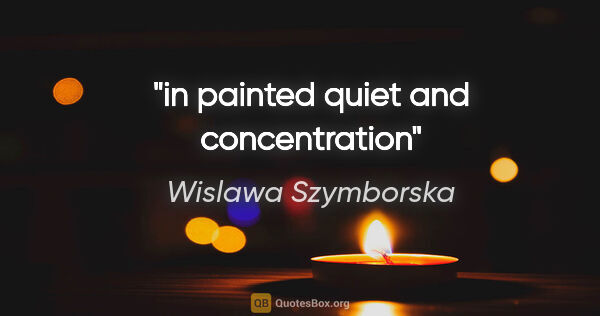Concentrating Quotes (page 9)

A human being is not one thing among others; things determine each other, but man is ultimately self-determining. What he becomes - within the limits of endowment and environment- he has made out of himself. In the concentration camps, for example, in this living laboratory and on this testing ground, we watched and witnessed some of our comrades behave like swine while others behaved like saints. Man has both potentialities within himself; which one is actualized depends on decisions but not...
Viktor E. Frankl
I live in the Managerial Age, in a world of "Admin." The greatest evil is not now done in those sordid "dens of crime" that Dickens loved to paint. It is not done even in concentration camps and labour camps. In those we see its final result. But it is conceived and ordered (moved, seconded, carried, and minuted) in clean, carpeted, warmed and well-lighted offices, by quiet men with white collars and cut fingernails and smooth-shaven cheeks who do not need to raise their voices. Hence,...
C. S. Lewis


More striking still, it appeared that, if the process of concentration goes on at the same rate, at the end of another century we shall have all American industry controlled by a dozen corporations and run by perhaps a hundred men. Put plainly, we are steering a steady course toward economic oligarchy, if we are not there already.
Franklin D. Roosevelt
Never trust to general impressions, my boy, but concentrate yourself upon details. My first glance is always at a woman's sleeve. In a man, it is perhaps better to take the knee of the trouser. Chance has put in our way a most singular and whimsical problem, and its solution is its own reward.
Arthur Conan Doyle

Citizens by birth or choice of a common country, that country has a right to concentrate your affections. The name of American, which belongs to you, in your national capacity, must always exalt the just pride of Patriotism, more than any appellation derived from local discriminations.
George Washington
To the untutored sage, the concentration of population was the prolific mother of all evils, moral no less than physical. He argued that food is good, while surfeit kills; that love is good, but lust destroys; and not less dreaded than the pestilence following upon crowded and unsanitary dwellings was the loss of spiritual power inseparable from too close contact with one's fellow-men.
Charles Alexander Eastman
